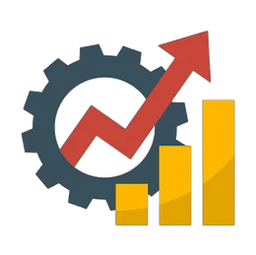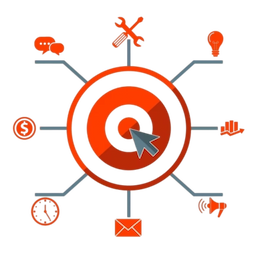Robotic Process Automation Services
Robotic Process Automation (RPA) can achieve numerous advantages for your business, ranging from efficiency and cost savings to improved accuracy and customer satisfaction. When implemented strategically, RPA can be a valuable tool to enhance your business operations and drive growth.
- /
- Services/
- RPA Services
Intelligent RPA Solutions Tailored for Top Global Organizations
What do you understand by RPA?
RPA robots are not physical robots but rather software programs that can mimic human interactions with digital systems, such as computer applications, databases, and websites. They can perform tasks like data entry, data extraction, form filling, calculations, and more.
RPA technology is designed to streamline and optimize business processes by reducing manual labor, minimizing errors, and increasing efficiency. It can be applied in various industries and functions, including finance, human resources, customer service, and supply chain management, among others. RPA robots are typically easy to configure and can be programmed to follow specific rules and workflows.
RPA is not a form of artificial intelligence (AI) in itself, but it can be combined with AI and machine learning to enhance its capabilities, allowing robots to make decisions, recognize patterns, and adapt to more complex tasks. It is a valuable tool for organizations looking to automate routine and repetitive tasks to save time and resources.
What Can Robotic Process Automation (RPA) Achieve for Your Business?
Robotic Process Automation (RPA) can achieve several significant benefits for your business.
Increased Efficiency: RPA can automate repetitive, rule-based tasks, reducing the time and effort required to complete them. This efficiency boost allows your employees to focus on more strategic and value-added activities.
Error Reduction: Automation minimizes the risk of human errors, leading to more accurate and consistent outcomes in various business processes.
Cost Savings: By automating tasks and processes, you can reduce operational costs associated with manual labor, such as salaries, training, and benefits.
Scalability: RPA solutions can be easily scaled up or down to accommodate changes in workload, making it adaptable to your business needs.
Enhanced Productivity: Employees can work alongside RPA, leveraging the technology to amplify their productivity and complete tasks more swiftly.
Improved Compliance: RPA can help ensure that processes adhere to regulations and industry standards, reducing the risk of compliance issues.
Faster Task Execution: RPA can handle tasks 24/7, allowing for quicker task execution and round-the-clock operations, which is especially beneficial for global businesses.
Data Accuracy and Integration: RPA can seamlessly integrate with various systems, databases, and applications, ensuring accurate data transfer and consistency across platforms.
Customer Satisfaction: Faster response times, reduced errors, and enhanced service quality can lead to improved customer satisfaction.
Strategic Insights: RPA can collect and analyze data, providing valuable insights that can inform better decision-making and strategic planning.
Competitive Advantage: Leveraging RPA can keep your business competitive by streamlining operations and improving service quality.
Employee Satisfaction: RPA can handle repetitive, mundane tasks, allowing your employees to focus on more engaging and creative aspects of their jobs, potentially increasing job satisfaction.
Robotic Process Automation (RPA) can achieve numerous advantages for your business, ranging from efficiency and cost savings to improved accuracy and customer satisfaction. When implemented strategically, RPA can be a valuable tool to enhance your business operations and drive growth.
Benefits of Robotic Process Automation for Your Company

Increased Efficiency

Error Reduction

Cost Savings

Enhanced Productivity

Faster Task Execution
